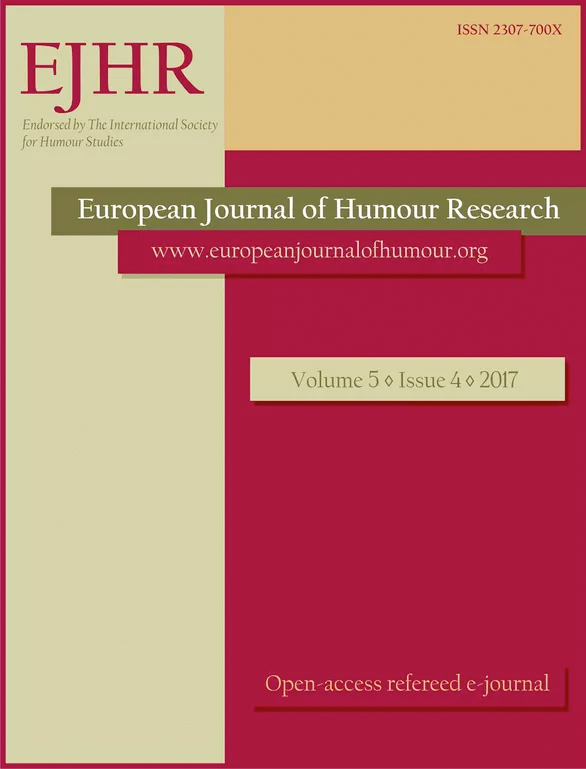Globalisation and ethnic jokes:
Globalisation and ethnic jokes:
A new look on an old tradition in Belarus and Estonia
Author(s): Liisi Laineste, Anastasiya FiadotavaSubject(s): Anthropology, Social Sciences, Language and Literature Studies, Customs / Folklore, Media studies, Theoretical Linguistics, Applied Linguistics, Communication studies, Pragmatics, Sociolinguistics, Cultural Anthropology / Ethnology, Theory of Communication
Published by: Krakowskie Towarzystwo Popularyzowania Wiedzy o Komunikacji Językowej Tertium
Keywords: ethnic humour; Belarus; Estonia; jokes as social facts; Internet;memes;
Summary/Abstract: Christie Davies, the renowned humour researcher and a passionate propagator of the comparative method in studying jokes, stressed the necessity of establishing a relationship between two sets of social facts: the jokes themselves on the one hand, and the social structure or cultural traditions wherein they disseminate on the other (Davies 2002: 6). He also inspired others to examine the differences and similarities in the patterns of jokes between different nations, social circumstances and eras. By doing this and building falsifiable models and generalisations of joking relationships, he changed the way we look at and analyse ethnic jokes.This study returns to earlier findings of Estonian (Laineste 2005, 2009) and Belarusian (Astapova 2015; Zhvaleuskaya 2013, 2015) ethnic jokes and takes a look at new trends in fresh data. Starting with the jokes from the end of the 19th century and ending with the most recent jokes, memes and other humorous items shared over the Internet, the paper will give an overview of how social reality interacts with the rules of target choice, above all describing the effect of globalisation on jokelore.
Journal: The European Journal of Humour Research
- Issue Year: 5/2017
- Issue No: 4
- Page Range: 85-111
- Page Count: 27
- Language: English

